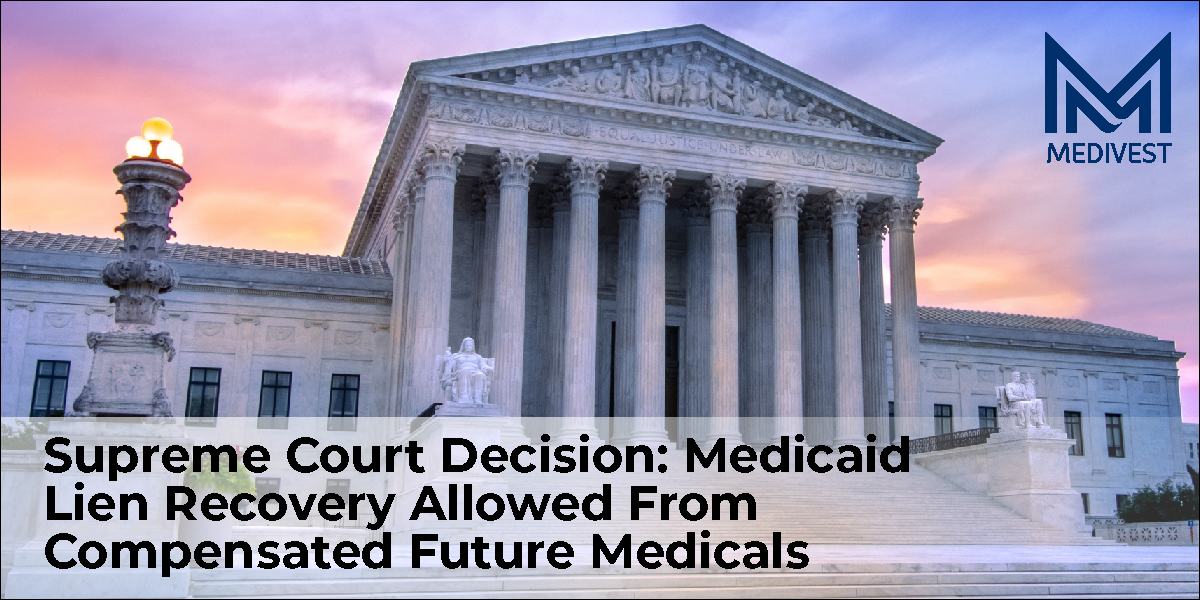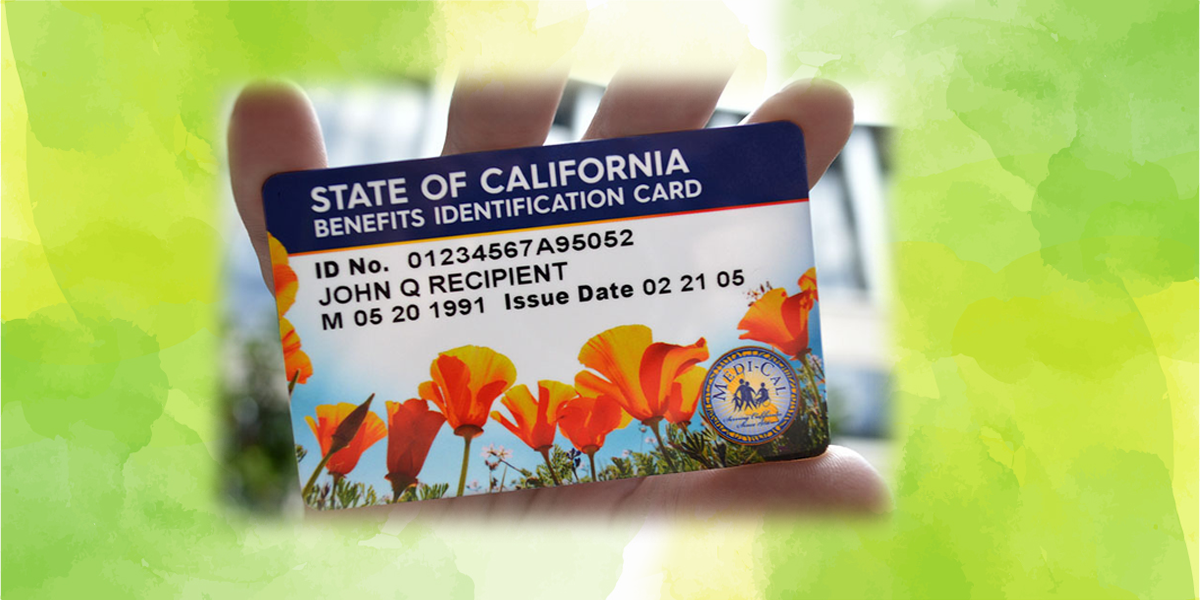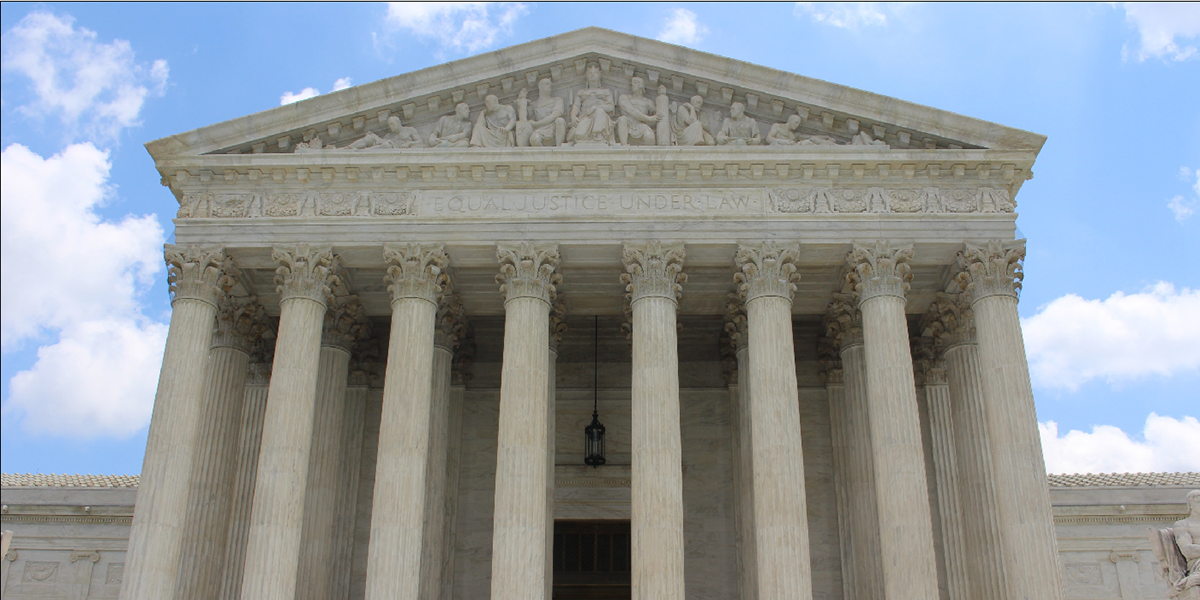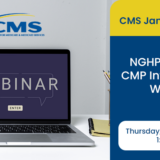The Medivest Blog
On November 16, 2021, the State of California’s Medicaid Agency, the Department of Health Care Services (DHCS or Medi-Cal), issued an All County Welfare Directors Letter (ACWDL or Letter) number 21-26 as a memo to all counties and people who administer various state based benefits, including all Medi-Cal Program Specialists/Liaisons.
The Letter provides clarification on Medicare Set-Aside (MSA) funds, as defined by CMS in the Workers’ Compensation realm. The primary message is that “MSAs, also called Workers’ Compensation Medicare Set-Aside Arrangement Accounts (WCMSA), are not countable as income and property on the basis of their unavailability when determining an individual’s eligibility for Medi-Cal.”
This can be significant for several reasons outlined in the Takeaways section. Traditionally, an injured party that was otherwise eligible for need based benefits would be advised by their attorney to have a 1st Party Special Needs Trust of some type (individual or Pooled Trust – together referred to here as an SNT) established to help assure the eligibility of those benefits at that time or in the future. However, there may be times when the cost of establishing such an SNT might be cost prohibitive compared to the value of the benefits to be protected.
Summary
The Letter describes that because the funds in the MSA account are to be used for their intended purpose, covering the costs of future medical needs [that are injury related and Medicare covered], they should be considered unavailable income and not countable when determining an individual’s eligibility for Non-Modified Adjusted Gross Income (MAGI) programs. However, the Letter indicates that it is important to note that interest or dividends generated by the interest-bearing account should be considered available income for MAGI eligibility determination.
The Letter explains that MSAs had previously been determined to not be countable as property pursuant to a previous All County Welfare Directors letter numbered 90-01 from 1990. “MSA funds are considered unavailable property under ACWDL 90-01 (January 5, 1990), Section 50402 of that letter.”
The Letter also provides guidance to California counties on MSAs regarding:
-
-
MAGI eligibility
-
Non-MAGI eligibility concerning:
-
Property
-
Income
-
-
Tasks that are County responsibilities
-
Tasks that are NOT County responsibilities
-
The full ACWDL 21-26 Letter with additional details and information is available here.
Takeaways
-
This Letter does not discuss settlements that exceed the WCMSA amount. Settlements that exceed the WCMSA amount meaning they exceed the injury related Medicare covered medical items, services, and expenses reasonably expected for the injured party and that are paid outside the WCMSA, might disqualify the injured party from Medi-Cal benefits.
-
The Letter also does not discuss that the injured party’s need based benefits may be jeopardized if the injured party moves to another state without taking steps to address the eligibility of the new state’s Medicaid benefits via the use of an SNT within the required time frame to afford such protection.
-
The information in this Letter may come in handy for certain cases where the cost of a SNT is a prohibitive factor that would affect whether a smaller Workers’ Compensation settlement could proceed.
-
The letter does not make it clear how Medi-Cal would view a liability MSA (LMSA), i.e., an MSA allocation report and arrangement for administration pursuant to the settlement of a liability case.
-
As always, you should consult with an attorney licensed in the state where the settlement occurs (as well as disclose to the injured party to consult with an attorney specializing in the protection of need based benefits for the state where the settlement occurs and in any state they plan to move to ahead of their move) to confirm their rights, their entitlement to any specific benefits, and so that they understand that state need based benefit eligibility varies and other states’ laws likely do not afford this same protection.
Count on Medivest to help guide you through some of the complexities associated with Workers’ Compensation and liability settlements that involve some evaluation of Medicare Secondary Payer Act (MSP) compliance, when you are not sure whether a Medicare Set-Aside arrangement should be utilized, or when need based benefits are in the picture or may be in the injured party’s future.
On Friday, July 2nd, 2021 the U.S. Supreme Court announced it would take up a legal battle that could have a dramatic effect on settlements in the state of Florida, and potentially the entire country. At question in Gallardo v. Marstiller will be whether Florida’s Medicaid program is only entitled to be reimbursed for the money it spent for a Medicaid beneficiary/Member’s past medicals up to the date of a settlement, judgment, award or other arrangement (“settlement”) or whether it is entitled to recover a portion of the settlement that represents future medical expenses too. Gallardo By & Through Vassallo v. Marstiller, 141 S. Ct. 2884 (2021).
A Brief Summary of Events
In 2008, a Lee County school bus struck and seriously injured 13-year-old Gianinna Gallardo. Florida’s Medicaid agency provided $862,688 in medical payments on Gianinna’s behalf. Her parents sued the responsible parties and ultimately agreed to an $800,000 settlement, of which $35,367 was allocated as past medical expenses.
Florida’s Medicaid agency, using the state’s then-current statutory formula to calculate reimbursement, claimed it was entitled to $323,508 of Gianinna’s settlement. However, the state’s statutory formula did not distinguish between past and future medicals and included money in the settlement that was allocated for future medical expenses.
The Gallardo family sued the state Medicaid agency in federal court, arguing that Florida’s reimbursement formula violates federal law because the state should only be able to recover from that portion of her settlement allocated to past medical expenses. The Medicaid agency countered that it was entitled to satisfy its lien from the portion of the settlement representing compensation for both past and future medical expenses.
Between 2017 and 2020 several courts weighed in on similar cases but decisions at odds with each other. In 2017, U.S. District Judge Mark Walker ruled in favor of the Gallardo family. In a 2020 appeal, the 11th Circuit rejected Walker’s decision and ruled that the Florida Agency for Health Care (“AHCA” or “Florida Medicaid”) was entitled to $200,000 of the settlement (Gallardo v. Dudek, 11th Cir., No. 17-13693, June 26, 2020). However, in a separate 2018 case, Giraldo v. Agency for Health Care Admin., 248 So. 3d 53 (Fla. 2018), the Florida Supreme Court said the federal Medicaid Act preempted a state law that authorized Florida Medicaid to seek reimbursement from “portions of (a settlement) that represents future medical funds.” Therefore, that case seemed to indicate that Florida Medicaid was only entitled to recover the portion of money from a settlement that represented past medical expenses
Potential Far-Reaching Effects of a U.S. Supreme Court Medicaid Lien Recovery Decision
All Medicaid agencies have a duty under Federal law to recover past medical payments and most attorneys know to do a lien search when their clients are enrolled in Medicaid. However, up to now, attorneys never had a legal duty to set aside a portion of settlement proceeds to protect Medicaid’s future interests. The current state of federal law on this topic has been discussed in our prior blog referencing the U.S. Supreme Court’s decisions in Ahlborn and Wos, and their reinstatement via the Budget reconciliation Act of 2018. Now the U.S. Supreme Court will weigh in this issue – i.e., whether a Medicaid agency like Florida’s is entitled to seek a portion of funds designated for future medical care from a settlement, judgment, award, or other arrangement (each individually now referred to as “settlement”) when it takes up Gallardo v. Marstiller.
How would that be enforced if it is decided that Medicaid’s future interests must be considered at the time of a settlement, judgment, award, or other arrangement? Could this set legal precedent for a nationwide practice of Medicaid beneficiaries setting aside some portion of their settlements to represent Medicaid futures like is done for certain cases involving Medicare beneficiaries or those who have a reasonable expectation of becoming Medicare beneficiaries within 30 months of settlements? Is it possible that a U.S. Supreme Court ruling in favor of Florida Medicaid’s future interests may lead to a federal statute setting forth the protection of Medicaid’s future interests in settlements similar to the way the Medicare Secondary Payer Statute sets the framework for the protection of Medicare’s past and future interests?
The effects could be felt beyond the state of Florida. Perhaps this is the reason that briefs have been filed in this case by or on behalf of the National Conference of State Legislatures, the National League of Cities, the U.S. Conference of Mayors, and the Government Finance Office, the American Justice Association, the Florida Justice Association, the American Academy of Physician Life Care Planners
Additionally, the outcome could increase the awareness of Medicaid lien resolution specifically and lien resolution generally. Furthermore, if it is determined that Medicaid is entitled to at least some portion of the expected accident-related Medicaid futures, this could affect how Medicare Set-Aside (MSA) allocation reports would be prepared when beneficiaries are dual enrolled, and could increase the need for Professional Administration, due to the complexity of administering funds set aside for protection of both Medicare and Medicaid’s interests.
The Supreme Court’s decision will likely come during the Court’s 2021-2022 term. At that time Medivest will review the decision and provide analysis on what effects it could have on settlement services.









